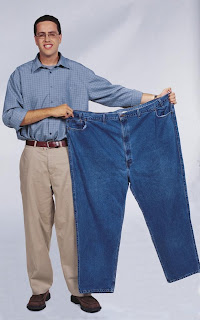1. Listen to white noise or relaxation CDs. Some people find the sound of white noise or nature sounds, such as the ocean or forest, to be soothing for sleep. An excellent relaxation/meditation option to listen to before bed is the Insight audio CD.
2. Avoid before-bed snacks, particularly grains and sugars. This will raise blood sugar and inhibit sleep. Later, when blood sugar drops too low (hypoglycemia), you might wake up and not be able to fall back asleep.
3. Sleep in complete darkness or as close as possible. If there is even the tiniest bit of light in the room it can disrupt your circadian rhythm and your pineal gland's production of melatonin and seratonin. There also should be as little light in the bathroom as possible if you get up in the middle of the night. Please whatever you do, keep the light off when you go to the bathroom at night.
4. No TV right before bed. Even better, get the TV out of the bedroom or even out of the house, completely. It is too stimulating to the brain and it will take longer to fall asleep. Also disruptive of pineal gland function for the same reason as above.
5. Wear socks to bed. Due to the fact that they have the poorest circulation, the feet often feel cold before the rest of the body. A study has shown that this reduces night wakings
6. Avoid using loud alarm clocks. It is very stressful on the body to be awoken suddenly. If you are regularly getting enough sleep, they should be unnecessary. I gave up my alarm clock years ago and now use a sun alarm clock. The Sun Alarm™ SA-2002 provides an ideal way to wake up each morning if you can't wake up with the REAL sun. Combining the features of a traditional alarm clock (digital display, AM/FM radio, beeper, snooze button, etc) with a special built-in light that gradually increases in intensity, this amazing clock simulates a natural sunrise.
7. Keep the temperature in the bedroom no higher than 70 degrees F. Many people keep their homes and particularly the upstairs bedrooms too hot.
8. Eat a high-protein snack several hours before bed. This can provide the L-tryptophan need to produce melatonin and serotonin.
9. Also eat a small piece of fruit. This can help the tryptophan cross the blood-brain barrier.
10. Avoid caffeine. A recent study showed that in some people, caffeine is not metabolized efficiently and therefore they can feel the effects long after consuming it. So an afternoon cup of coffee (or even tea) will keep some people from falling asleep.
11. Avoid alcohol. Although alcohol will make people drowsy, the effect is short lived and people will often wake up several hours later, unable to fall back asleep. Alcohol will also keep you from falling into the deeper stages of sleep, where the body does most of its healing.
12. Lose weight. Being overweight can increase the risk of sleep apnea, which will prevent a restful nights sleep.
13. Avoid foods that you may be sensitive to. This is particularly true for dairy and wheat products, as they may have effect on sleep, such as causing apnea, excess congestion, gastrointestinal upset, and gas, among others.
14. Don't drink any fluids within 2 hours of going to bed. This will reduce the likelihood of needing to get up and go to the bathroom or at least minimize the frequency.
15. Take a hot bath, shower or sauna before bed. When body temperature is raised in the late evening, it will fall at bedtime, facilitating sleep,
16. Remove the clock from view. It will only add to your worry when constantly staring at it... 2 a.m. ...3 a.m. ... 4:30 a.m. ...
17. Keep your bed for sleeping. If you are used to watching TV or doing work in bed, you may find it harder to relax and to think of the bed as a place to sleep.
18. Don't change your bedtime. You should go to bed, and wake up, at the same times each day, even on the weekends. This will help your body to get into a sleep rhythm and make it easier to fall asleep and get up in the morning.
19. Make certain you are exercising regularly. Exercising for at least 30 minutes everyday can help you fall asleep. However, don't exercise too close to bedtime or it may keep you awake. Studies show exercising in the morning is the best if you can do it.
20. Establish a bedtime routine. This could include meditation, deep breathing, using aromatherapy or essential oils or indulging in a massage from your partner. The key is to find something that makes you feel relaxed, then repeat it each night to help you release the day's tensions.
21. Go to the bathroom right before bed. This will reduce the chances that you'll wake up to go in the middle of the night.
22. Put your work away at least one hour (but preferably two or more) before bed. This will give your mind a chance to unwind so you can go to sleep feeling calm, not hyped up or anxious about tomorrow's deadlines.


















